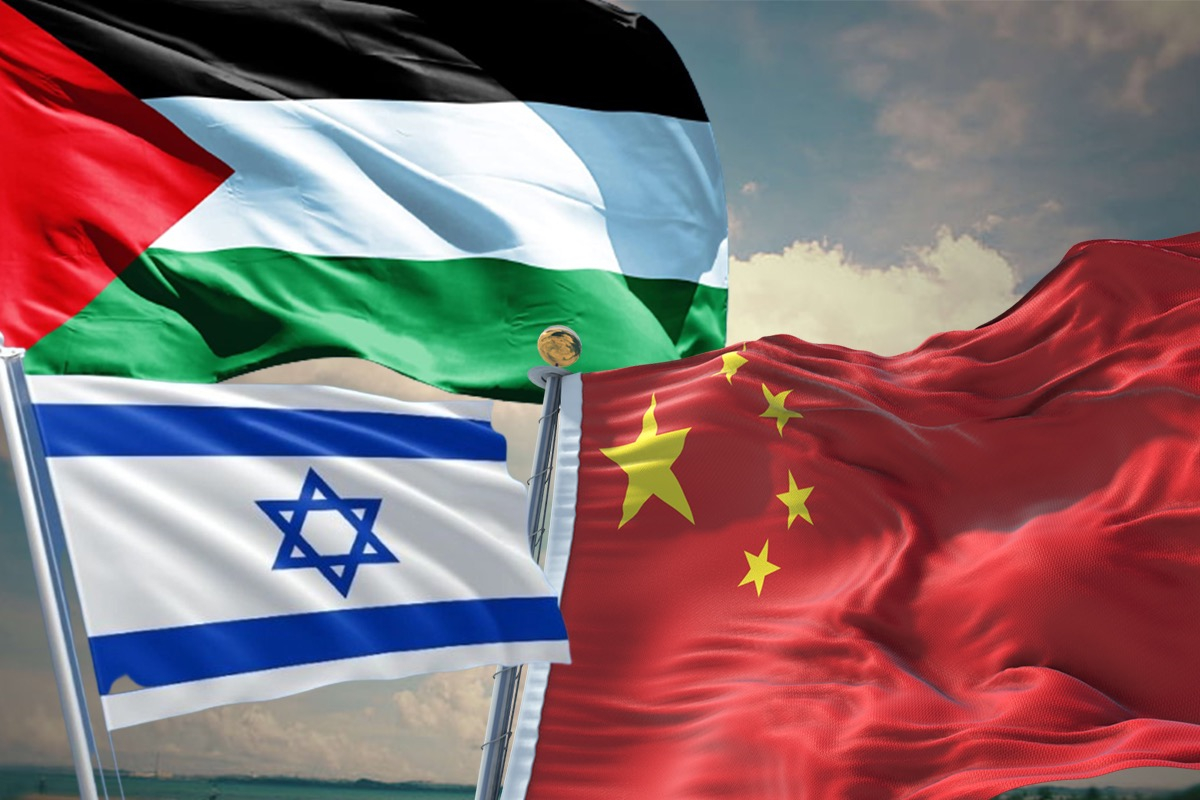China’s Foreign Minister Qin Gang has told his Israeli and Palestinian counterparts that his country is ready to facilitate peace talks between the two sides. This offer comes as the latest effort from China to mediate further in the Middle East after brokering the Saudi-Iran peace talks.
In separate phone calls to his counterparts in Israel and Palestine on Monday, Chinese FM Qin expressed China’s concern over intensifying tensions between Israel and the Palestinians and its support for a resumption of peace talks, the Foreign Ministry said.
Qin stressed in his talks with Israeli Foreign Minister Eli Cohen that Saudi Arabia and Iran have set a good example of overcoming differences through dialogue, a statement about that phone call said.
He told Cohen that Beijing encourages Israel and the Palestinians to show political courage and take steps to resume peace talks. “China is willing to provide convenience for this,” he was quoted as saying.
Similarly, the Chinese FM told his Palestinian Authority counterpart Riyad Al-Maliki that China was willing to play an active role in restarting peace talks in one of the world’s longest-running conflicts.
Israel’s Foreign Ministry said in a statement that Qin and Cohen discussed “the importance of maintaining quiet at the Temple Mount, particularly in the final days of Ramadan,” the Muslim holy month, but made no mention of peace talks with the Palestinians.
Israeli Foreign Minister Eli Cohen also further conveyed to FM Qin “the threat that we see in Iran’s nuclear program” and called on China to help prevent Tehran from obtaining nuclear weapons.
Ariel Formanovski, an independent Israeli journalist and a member of the Judicial Quality movement in Israel, while speaking to The New Indian, said, “The Chinese offer on peace mediation is raising eyebrows in Israel as China is viewed as an ally of Iran’s IRGC and is also in favour of Iran acquiring nuclear weapons. Hence this move from the Chinese is more to undermine the US influence in the region than to play a serious role as a peacemaker”.
He said that this offer from the Chinese government comes at a time when relations between Israel and the US are stressed. The Biden administration has blamed the Netanyahu-led government in Israel for destabilising the region by undermining the Abraham Accords as Israel once again looks at the expansion of settler colonies inside the West Bank.
Israel, on the other hand, has accused President Biden of being soft on Iran’s nuclear program. After the International Atomic Energy Agency released its report on finding traces of uranium enrichment at 83.7 per cent and declaring that Iran was weeks away from producing fissile material for a nuclear weapon, Israel Prime Minister Benjamin Netanyahu called upon the US and its allies to enforce stringent sanctions and a possible military intervention to halt Iran’s nuclear program.
The US, on the other hand, has been advocating diplomatic measures to handle the crisis. In a video of President Biden that surfaced last year on the question of the Joint Comprehensive Plan of Action (JCPOA), Biden responded that “it is dead, but we are not going to announce it. Long story”.
In a renewed diplomatic bid, the Biden administration recently discussed with its allies, including Israel, a proposal of resuming talks with Iran aimed at reaching an interim deal to freeze Iran’s nuclear program. Israeli officials commented that Iran knows about the deal and the Iranians are not on board.
In response, the US National Security Council commented that President Biden is committed to stopping Iran “and we still believe diplomacy is the best way to achieve that objective.” This prompted a response from the IDF chief, who recently stated that the US is an ally of Israel, but Israel can handle its national security threats alone and doesn’t need the US to be on its side.
Both Israel and Iran are currently involved in a dangerous shadow war that is seemingly on the rise. Israel has recently carried out bombings on pro-Iranian militant groups in Syria and also carried out a drone strike in the Iranian city of Isfahan. The military tensions between the two nations are building considerably.
On the other hand, the tensions between Israel and Palestine are on the rise. The recent clashes at Al-Aqsa mosque in Jerusalem earlier this month had drawn widespread condemnation from the Arab countries.
With China brokering a peace deal between Iran and Saudi Arabia, Israel finds itself in a weakened position in the Middle East, and Israel-US relations stretch further.
As Israel worked on normalising ties with the Arab world, including Saudi Arabia, with an aim to isolate Iran, the Saudi-Iran peace deal has been a setback for Israel.
The recent clashes at Al-Aqsa mosque between Israel and Palestinians have once again undermined Israel’s peace efforts with the Arab world, including Saudi Arabia.
Last month, China brokered a deal between Saudi Arabia and Iran to restore diplomatic ties that were cut off in 2016. It was a dramatic moment of diplomacy for China, which Beijing touted as evidence of its ability to be a diplomatic player in the Middle East.
China is now exerting the same evidence to further undermine US influence by offering to facilitate dialogue between Israel and Palestine.









